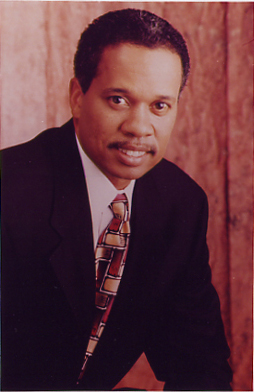 Juan Williams |
Williams, one of America’s leading political writers and thinkers, is the author of the critically acclaimed biography: Thurgood Marshall: American Revolutionary. He is also the author of the nonfiction bestseller Eyes on the Prize: America’s Civil Rights Years, 1954-1965, companion volume to the critically praised PBS series. After a 23-year career as a columnist, editorial writer, and White House correspondent for the Washington Post, Williams recently became a senior correspondent for NPR News after spending 18 highly successful months as the host of National Public Radio’s Talk of the Nation.
Williams is also a panelist for Fox News Sunday and host of America’s Black Forum. He has won an Emmy Award for TV documentary writing and won wide-spread critical acclaim for a series of documentaries including Politics—The New Black Power. His documentary on A. Phillip Randolph was featured on PBS. Articles by Williams have appeared in magazines ranging from Newsweek, Fortune, and The Atlantic Monthly to Ebony, Gentlemen’s Quarterly, and The New Republic.
A political analyst for the Fox News channel, Williams has also appeared on numerous television programs, including Nightline, Washington Week in Review, Oprah, CNN’s Crossfire (where he frequently served as co-host), and Capitol Gang Sunday. Williams’ book on Justice Marshall resulted from an exclusive series of interviews the legendary Judge granted him over a six-month period shortly before Marshall’s retirement. The story of Marshall’s life and work is a window into the great civil rights movement of the 20th Century.
Williams’ lecture is free and open to public. There will be a reception following his Monday lecture.
For more information see: